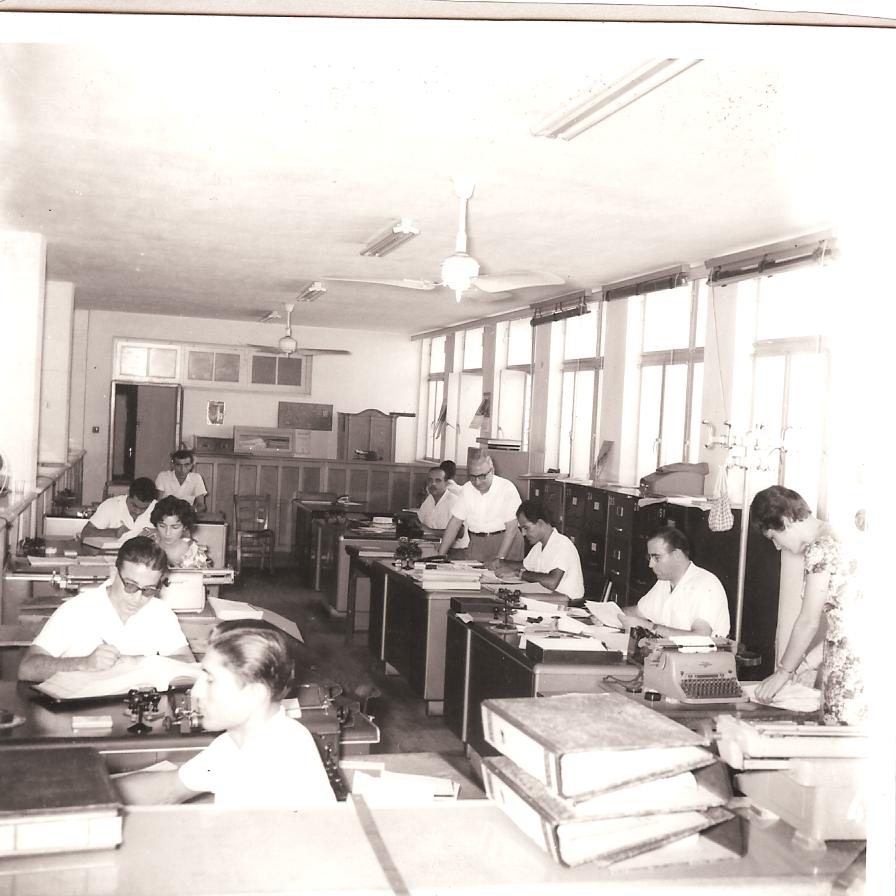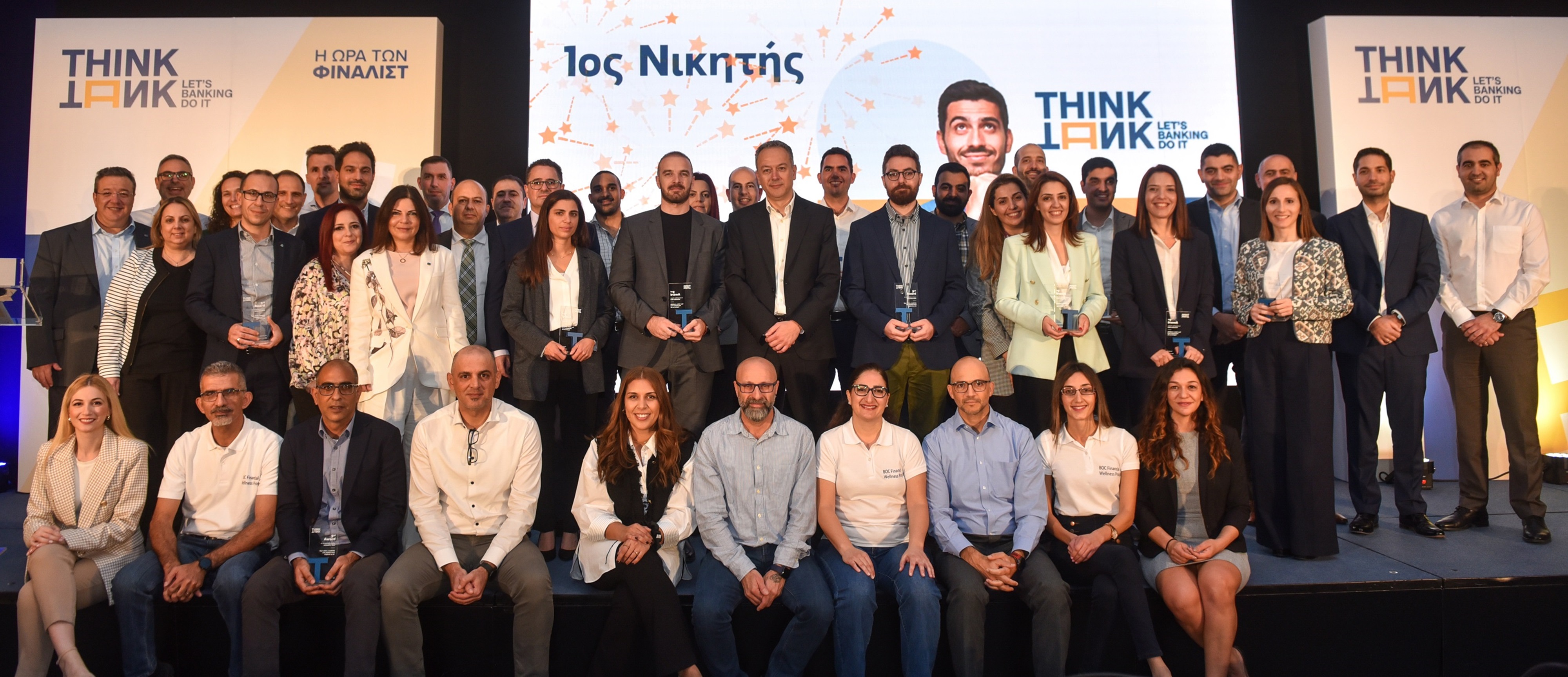At a time of transformation on all levels, both the Bank of Cyprus and its staff continue evolving
Human capital is and will remain the steam engine of a business. Even when technology promises to do everything, perhaps replacing people with robots, business organisations know that the human aspect remains key to success.
At a time of rapid technological advancements, businesses today need to be mobile and adaptable. New changes are shaping the future of labour through social and technological transformation. However, just as a company grows and develops, its people acquire knowledge and skills, their work focused on achieving success for the company.
Today, in an era where young people have a completely different take on work, businesses that want to look – and be – ethical and correct must create a fair and discrimination-free work environment, offering equal opportunities to all, supporting growth and providing opportunities for career advancement.
A friendly environment
Since its establishment 125 years ago, the Bank of Cyprus has always been guided by the desire to be an industry leader but also to create a staff-friendly workplace. Always ahead of its time, it recognised the importance of investing in human resources, whom it sees as the ambassadors of its brand as well as the key to growing the Bank. Throughout the years, by regarding its staff as its most valuable asset, the Bank has offered opportunities for personal and professional growth, adhering to the creed of the right to equal reward for equal labour.

The first female employee
As tangible proof of its commitment to policies ensuring equal treatment of the genders, the Bank recently won an award from the National Certification Body for implementing a comprehensive system of human resources management. The Bank has been employing women since 1936. Its first ever female employee was Eleni Kyrou. Hiring her was at the time a revolutionary decision, a milestone that sealed the future employment of women in the banking industry.
Today, 88 years after hiring her, 60.71 per cent of workers at the Bank are women, and 15 per cent of them hold managerial positions. Meanwhile 60.37 per cent of those participating in training/re-skilling are also women. And as part of its ESG commitments, the Bank intends to increase to 30 per cent the percentage of women in senior management by the year 2030.
Investing in training
The Bank of Cyprus considers its human capital as the driving force behind achieving the organisation’s vision, mission, values and culture. For this reason, the Bank continues to invest in new learning tools and alternative training methods via live online lessons/seminars, e-learning and classes in physical rooms.
The Bank has created the BoC Academy in partnership with the CIM-Cyprus Business School. This offers staff the ability to ‘go back to school’ and upgrade their professional know-how and skills.
It has also rolled out a cutting-edge initiative for learning and development called ULEAD, featuring learning programmes that enhance efficiency and leadership skills through modern learning formats.
Cognizant that a healthy environment will raise staff efficiency, and keen to ensure both professional and personal wellbeing, the Bank operates the Well at Work programme. It’s designed to support physical, mental, social and economic wellbeing as well as encourage participation in corporate volunteer activities that have a positive impact on the community.
The programme has been developed in partnership with doctors, psychologists, dieticians and other experts. It focuses on improving quality of life, both on a professional and personal level given the interconnection between the two. It also promotes safety and good health in the workplace, and takes all steps necessary to avert potential risks.

Best work practices
At this point, let’s mention that the Bank of Cyprus has sought to create a healthy environment at the workplace since as far back as the 1950s. In 1951, the Bank of Cyprus and the Mortgage Bank of Cyprus created the General Insurance of Cyprus, the first insurance company on the island. The new company’s offices were based in Nicosia, next to the headquarters of the Bank at Faneromeni which, incidentally, was renowned for its central heating – a luxury at the time – and for the comforts it provided staff during the winter.
Since it began operating 125 years ago, the Bank has cared about its staff, good working conditions, remuneration and benefits.
In March 1922, a meeting of ‘the special committee on salaries’ was held, and then director of the Bank Ioannis Economides (who presented the pay scales of employees of the Bank of Athens and the Ottoman Bank) was tasked with drawing up a wage plan. The plan was approved, as was a preliminary plan for a Provident Fund.
Thirty-four years later, in January 1956, Bank employees received an indexation allowance – an important benefit at the time – paving the way for more benefits in the years to come.

Post-independence
As the Bank continued to grow, three years later – on May 17, 1959 – the first conference of the bank workers union ETYK was held. On September 30 of the same year, ETYK and Bank of Cyprus signed their first agreement.
Also in 1959, on the eve of national independence, three banks – Bank of Cyprus, Laiki Bank of Limassol and the National Bank of Greece – agreed to the return of their employees who had been held in jail as political prisoners. These banks moreover paid these people all their salaries, without any problems whatsoever – in contrast to what other banks did.
In 1964, when the National Guard was created, many male employees were called up for army duty. Not only did the Bank not cause any problems for these employees, it also paid their salaries in full as the rest of the staff worked without complaint to cover the vacuum.
Another trailblazing action for the time was the Bank’s decision in 1965 to give female employees the right to keep working after marriage. It was an important year for women, ensuring their continued employment even after marriage.
1974 was a milestone year for the island in general and for the Bank’s staff. The Bank’s board counted the considerable loss as a result of the Turkish invasion, and decided to give an allowance of up to £200 to unmarried staff and up to £400 to married staff who had lost their belongings. According to data from the Bank archives, around 32 employees were affected by the invasion (data is as of August 7, prior to the second phase of the invasion).
100 years of successes
In 1999, one hundred years after the Bank’s founding, the board decided to reward its employees (approximately 3,900 individuals) with 1.5 million warrants on the same terms as those given to shareholders. The warrants were distributed proportionately, according to the employees’ position. In addition, 100 free shares were given to all members of staff who were employed as of May 4, 1999 regardless of position. This included still-living employees who had since retired.
Transformation
The Bank of Cyprus continues to grow, and with it, the size of the staff. Boasting 113 people in 1948, 140 in 1951, and 267 in 1955, today the Bank personnel numbers (factoring in early retirement plans) 2,426 staff – a reduction of 2.1 per cent compared to 2022. In 2023, there were 39 new hires and 81 departures. Note here that 99.5 per cent of employees work on non-fixed term contracts.
Already going through a period of transformation and change at all levels, the Bank and its staff continue to evolve. The Bank of Cyprus knows that investing in talented personnel, ongoing training of staff, and an attractive workplace is indispensable in the drive to attain its goals and come out successful at a time of multiple and formidable challenges.







Click here to change your cookie preferences